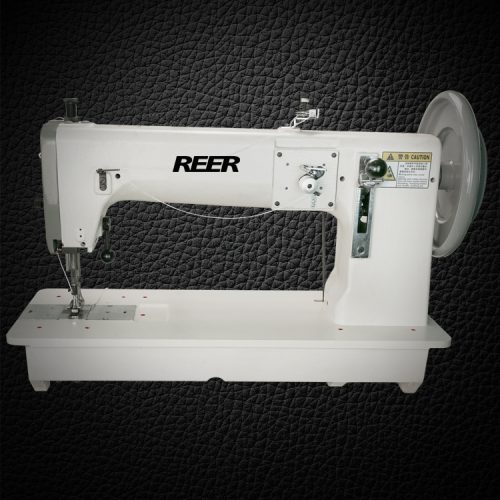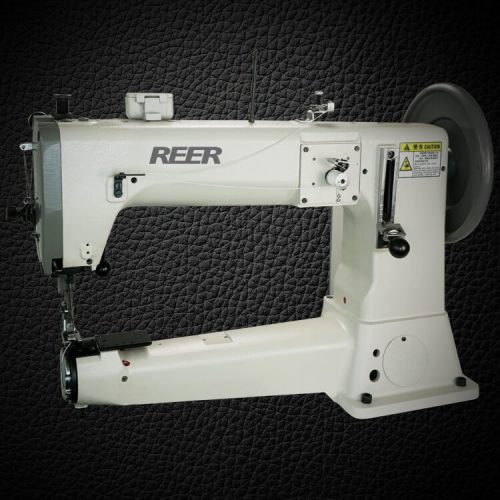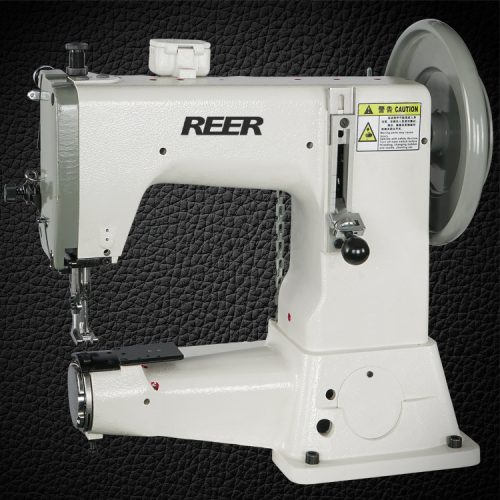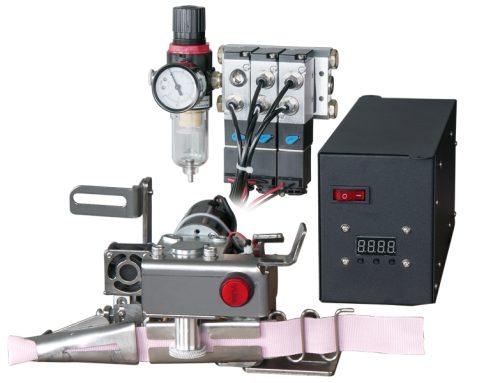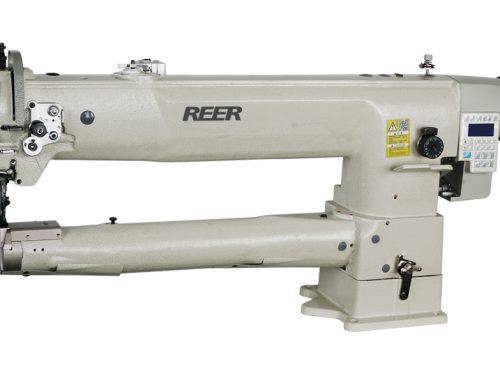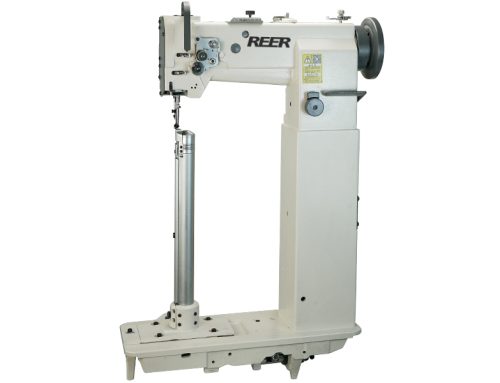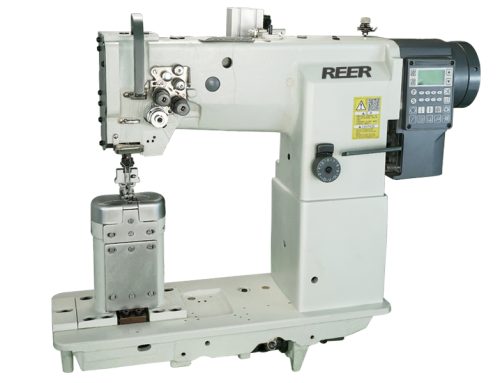Extra heavy duty sewing machine are designed for tough tasks that regular machines can’t handle. They work great with thick materials like leather, canvas, and denim. Heavy duty industrial sewing machine are common in places like factories and workshops where strong stitches are needed. Think of making heavy-duty items like bags, saddles, or thick garments. Their robust design and powerful motors ensure stitches that hold up over time. In simple terms, if you need to sew something super strong, an extra heavy duty machine is your go-to tool.
REER industrial heavy duty sewing machine for sale
Among our REER Extra heavy duty sewing machines, we divide them into 2 types: cylinder arm extra heavy duty sewing machine, flatbed extra heavy duty sewing machine.
1. Cylinder arm extra heavy duty sewing machine, suitable for sewing rounded or curved items like golf bags, saddles, handbag handles, baseball gloves, sports equipment, offering easy access to tricky areas.
(REER machine model 441, 205)
2. Flatbed extra heavy duty sewing machine, suitable for sewing flat items like seat belts, car mates, bag belts, tents that require strong and consistent stitching for durability.
(REER machine model 243)
Extra heavy duty sewing machine features:
Extra heavy duty sewing machine stand out for their strong features and benefits. First, they come with powerful motors that can handle thick fabrics like leather and denim without struggling. This means you get sturdy stitches that last a long time. Additionally, heavy duty industrial sewing machine have tough needles and feed mechanisms, ensuring smooth sewing even on challenging materials. Their durability means less maintenance and fewer breakdowns, saving time and money. In short, if you want reliable, strong stitches on tough materials, an extra heavy duty machine is your best bet.
Scope of Use of Extra heavy duty sewing machine:
1. Thick Materials: Ideal for sewing through thick fabrics like leather, denim, canvas, etc.
2. Tough Projects: Perfect for crafting heavy-duty items such as bags, saddles, thick carmats, etc.
3. Industrial Settings: Commonly found in factories and workshops where strong, reliable stitches are a must.
4. Specialized Jobs: Used for tasks that regular sewing machines can’t handle due to their power and durability.
5. Professional Work: Often chosen by professionals who need consistent, high-quality stitches on challenging materials.

